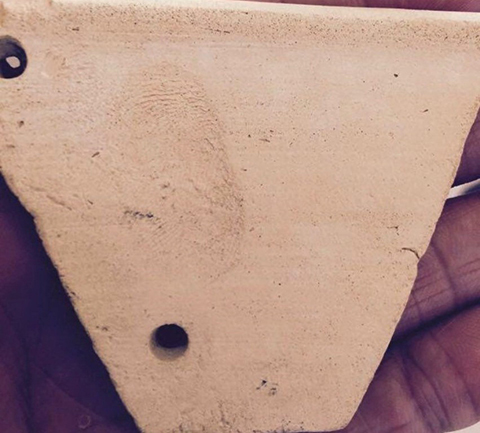KUWAIT: A joint team of archaeologists have discovered a 7,300-year-old human fingerprint - the earliest in the Near East region - in Subiyya in northern Kuwait. The fingerprint was found on a piece of a broken clay pot dating from the Stone Age (8,700 BC to 2,000 BC) in the Bahrah I Excavation Zone in Subiyya, an official from the National Council for Culture, Arts and Letters (NCCAL) announced on Friday.
"The find adds to a list of important discoveries recently excavated in the area - these include an ancient town, a temple, a cemetery, wells and pottery, which provide important clues on the life of primitive man," said Dr Sultan Al-Duweesh, director of NCCAL's archaeological and museums department. "The team of excavators is made up of 17 archaeologists, including 11 Poles, five Kuwaitis from NCCAL and a US scholar," Duweesh pointed out.
He added that NCCAL is in consultation with the UN Educational, Scientific and Cultural Organization (UNESCO) to add Bahrah I Excavation Zone to the World Heritage List given its universal value and unique and exceptional significance to human civilization. "A UNESCO team led by Dr Mohammad Bu-Zyan visited the site as part of efforts to list it as a world heritage site," Duweesh said. NCCAL pursues a careful plan for archeological excavations and survey of the area, which bears the promise of providing a clearer insight into human life in the Stone Age, he added. - KUNA




